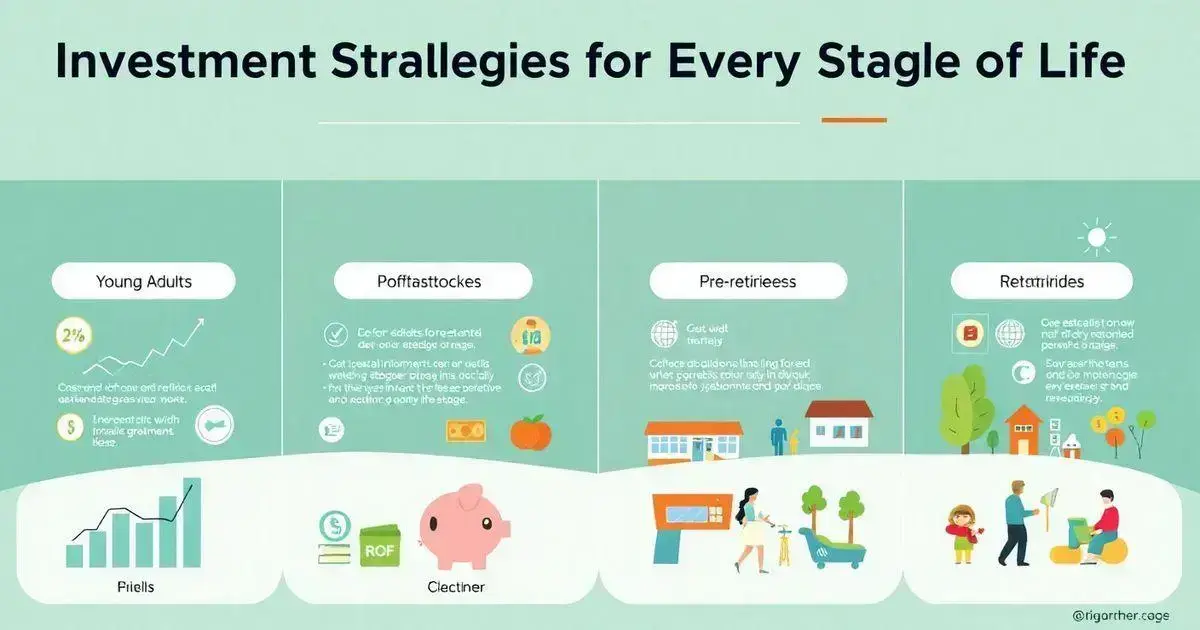Financial planning is the cornerstone of a secure and prosperous future. It equips you with the tools to set clear financial goals, build sustainable budgets, and develop smart investment strategies that align with your aspirations.
In an unpredictable economic environment, having a well-thought-out financial plan provides stability and confidence. It ensures you’re prepared for life’s uncertainties while working towards financial independence.
Ready to take control of your finances and achieve your goals? Continue reading to discover practical steps and strategies for effective financial planning.
Understanding Financial Planning Basics
Understanding financial planning basics is essential for anyone interested in securing their financial future. It begins with assessing your current financial situation, including income, expenses, assets, and liabilities. This assessment enables you to create a roadmap for achieving your short-term and long-term financial goals.
Next, it’s important to set realistic financial goals. These goals can range from saving for a new home to planning for retirement. Once your goals are defined, you can start to develop a budget that aligns with your objectives. A well-structured budget will help you track your spending and identify areas where you can save more.
Another critical aspect of financial planning is understanding various investment options. Consider your risk tolerance, investment horizon, and the diversification of your portfolio. Diversifying investments helps to spread risk and can lead to better returns over time.
Additionally, be prepared to adjust your financial plan as your situation changes. Life events such as job changes, family growth, or market fluctuations will require you to evaluate and adapt your strategies accordingly. Regularly reviewing your plan ensures that you stay on track towards achieving your financial goals.
Setting Financial Goals: A Step-by-Step Guide

Setting financial goals is a crucial step in the financial planning process. Start by identifying what you want to achieve, whether it’s buying a house, saving for retirement, or paying off debt. Be specific about your objectives; instead of saying, ‘I want to save money,’ say, ‘I want to save R100,000 for a down payment in five years.’
Next, categorise your goals into short-term and long-term. Short-term goals might include saving for a holiday or for an emergency fund, while long-term goals focus on retirement savings or education funds for children. Measurable goals help track progress. Consider how much you need to save each month to reach your targets.
It’s also important to set realistic goals based on your current financial situation. Review your income and expenses to see what is achievable without jeopardising your financial security. Finally, revisit and adjust your goals regularly. As your life changes, your objectives may shift, and that’s perfectly normal. Stay flexible in your planning to keep your financial journey on track.
Budgeting 101: Creating a Sustainable Financial Plan
Budgeting is a vital skill that everyone should learn. It helps you understand where your money is going and ensures that you can live within your means. Start by tracking your income and expenses for a month. Use a simple spreadsheet or a budgeting app to record your transactions, which will give you a clear picture of your financial habits.
Once you have a good grasp of your spending, categorize your expenses into fixed and variable costs. Fixed costs might include rent or loan payments, while variable costs encompass entertainment, groceries, and shopping. Identify areas where you can cut back on spending; for example, dining out less often or cancelling unused subscriptions can significantly impact your budget.
Next, set realistic spending limits for each category. Allocate a specific amount of your income to each area and make sure you stick to these limits. It’s also beneficial to set aside a portion of your income for savings and emergencies. Having an emergency fund is key to financial stability as it prepares you for unexpected expenses.
Review and adjust your budget regularly. Your financial situation may change, so be flexible and willing to reallocate funds as necessary. By regularly sticking to your budget, you can achieve your financial goals and gain better control of your money.
Investment Strategies for Every Stage of Life

Investment strategies vary throughout life depending on financial goals and risk tolerance. In your 20s and 30s, consider aggressive growth investments such as stocks or mutual funds. At this age, you can afford to take risks, as you have time to recover from potential losses. Diversification within your investments helps manage risk.
As you enter your 40s and 50s, start transitioning to more balanced investments. Consider including bonds or fixed-income securities in your portfolio. These are generally less volatile than stocks and provide consistent returns over time. Assessing your risk tolerance during this stage is crucial, as you approach retirement.
When you reach your 60s and beyond, your focus should shift to preserving capital and generating income. Secure investments, such as government bonds or dividend-paying stocks, can be beneficial at this stage. Additionally, consider consulting a financial advisor to create a retirement withdrawal strategy that maximizes your financial security. Regularly reviewing and adjusting your investment portfolio based on life changes will help maintain financial stability throughout different life stages.
Navigating Debt: Smart Solutions for Financial Freedom
Navigating debt can be challenging, but there are smart solutions to achieve financial freedom. Start by understanding the types of debt you have—such as credit card debt, student loans, or mortgages. Each type of debt has different terms and interest rates that impact your financial situation.
Make a list of all your debts, including balances and monthly payments. This will help you see the bigger picture.
Next, prioritize your debts based on interest rates. Focus on paying off high-interest debts first, as they cost you more over time. Consider using the debt avalanche method, which involves making minimum payments on all debts except the highest interest one, to pay that down faster.
Another option is to consolidate your debts if possible. This can mean transferring high-interest credit card balances to a card with a lower rate or taking out a personal loan to pay off the debts. Consolidation simplifies your payments and often reduces the total interest paid.
Finally, create a budget that accommodates your debt repayment plan. Tracking your expenses and cutting unnecessary costs can free up more money to pay off debts faster. Remember, staying disciplined and seeking help if needed through credit counselling can lead you to financial freedom.
The Importance of Emergency Funds in Financial Planning

Emergency funds are crucial in financial planning, as they provide a safety net during unexpected events. Start by determining how much you need to save. A good rule of thumb is to have three to six months’ worth of living expenses set aside.
Having an emergency fund means you won’t have to rely on credit cards or loans when facing financial challenges such as medical emergencies or job loss.
Consider where to keep your emergency fund. A separate savings account with easy access is ideal, as it keeps your funds away from regular expenses and helps prevent impulsive spending. You can also look for accounts that offer higher interest rates to help your money grow while still being accessible.
Regularly contribute to your emergency fund. Set up automatic transfers to build your savings consistently. Review your fund periodically to ensure it meets your current needs. If your living expenses increase, adjust your savings goal appropriately.
Being prepared with an emergency fund is a vital step toward achieving financial stability and peace of mind.
How to Adjust Your Financial Plan Over Time
Adjusting your financial plan is crucial as your life circumstances evolve. Begin by analyzing your current financial situation, including income, expenses, and savings. This analysis helps you assess whether your financial goals are still achievable or require modifications due to life changes.
Major life events such as marriage, having children, or switching jobs can have a significant impact on your financial needs. Reassessing your goals during these transitions ensures they remain realistic and aligned with your resources.
Celebrate the goals you’ve achieved and set new, attainable ones. If some objectives seem out of reach due to shifts in income or expenses, adjust them thoughtfully. Consider external factors like inflation, market trends, and personal development to refine your strategy.
Maintaining your budget is equally important. Monitor your spending habits regularly to identify areas for improvement. If you notice consistent deviations, investigate underlying patterns and make necessary adjustments to stay on track.
Finally, schedule periodic reviews of your financial plan—every six months or annually. Regular reviews help keep your plan aligned with your lifestyle and evolving goals, ensuring long-term financial stability.
In Summary: Effective Financial Planning
In conclusion, effective financial planning is a continuous process that helps achieve financial security and fulfil personal goals.
By understanding the basics of financial planning, setting achievable goals, budgeting wisely, investing strategically, managing debt effectively, and maintaining an emergency fund, you lay a strong foundation for your financial future.
Adapting your financial plan over time ensures that it remains relevant amidst life changes and economic fluctuations.
Remember, financial planning is not just about immediate needs but also about long-term wealth building.
Start today and take control of your financial journey.
Frequently Asked Questions about Financial Planning
What is financial planning?
Financial planning is the process of managing your finances to achieve personal economic goals, including budgeting, saving, and investing.
Why is an emergency fund important?
An emergency fund provides financial security during unexpected events, helping you avoid debt and maintain stability.
How can I set realistic financial goals?
You can set realistic financial goals by evaluating your current situation, knowing your income and expenses, and ensuring your goals are achievable.
What strategies can help manage debt?
Strategies such as prioritising high-interest debts, consolidating loans, and budgeting wisely can help manage and reduce debt effectively.
How often should I review my financial plan?
It’s advisable to review your financial plan at least once a year or after significant life changes to ensure it remains aligned with your goals.
What investment options should I consider?
Consider diversifying your investments with a mix of stocks, bonds, and mutual funds that match your risk tolerance and financial goals.
